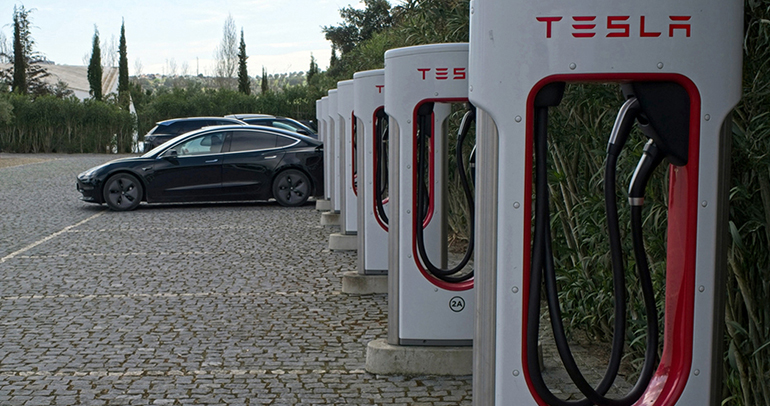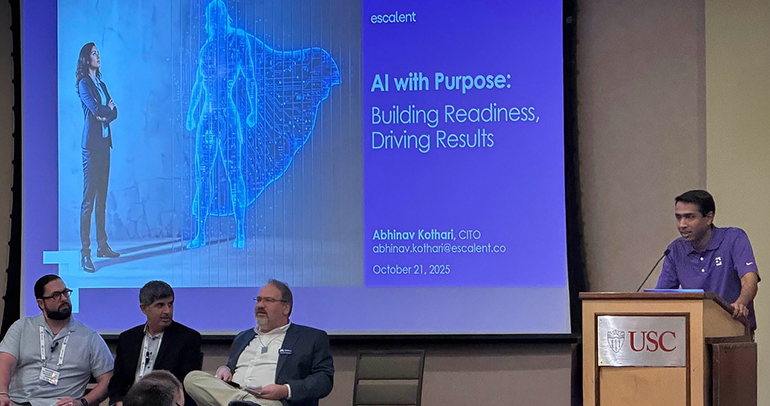
Fleet decision-makers appreciate the need to invest in new technologies and are once again taking steps toward adoption after slowing strategic investments into new fleet tech. That’s according to research from Escalent’s Fleet Advisory Hub™. This leading insights program is designed to assess the needs, expectations and emotions of commercial vehicle and fleet decision-makers.
The Fleet Technology Index (FTI) report, the flagship annual study from the Fleet Advisory Hub program, synthesizes feedback from 1,000 fleet decision-makers to assess perceptions of and market readiness for eight core and emerging technologies slated to disrupt the commercial vehicle and fleet industry. Based on participants’ responses and advanced data analytics, technologies are assigned an FTI score, with higher scores indicating a stronger likelihood of adoption.
Fleet Businesses Shifting to Growth Mode
In the wake of pandemic-induced challenges, supply chain constraints and economic uncertainty, many fleet companies were in survival mode. Now, the latest data suggest that businesses are shifting back to growth—and are eager to pick up the pace.
From 2020 to 2023, there was an overall 27% increase in Escalent’s FTI score. While the majority of the technologies represented in the study are in the early stages of adoption, this trend demonstrates a mounting recognition of the value of fleet technologies and a promising movement toward market readiness.
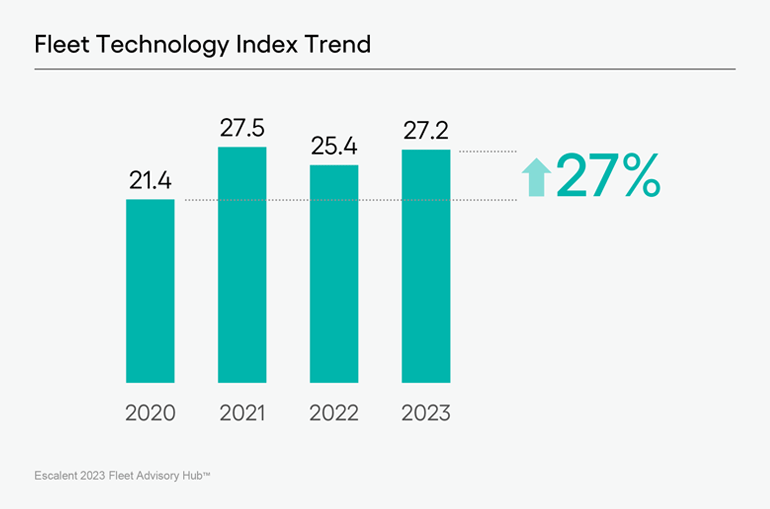
The FTI score for core technologies—data analytics, telematics, battery electric vehicles (BEVs) and autonomous vehicles (AVs)—has climbed by 33% since 2020. Meanwhile, the index score for emerging technologies—artificial intelligence (AI), drones, mobility services and blockchain—has risen by 16%.
Autonomous Vehicles Taking a Back Seat
Despite this positive trajectory, not all technologies are faring equally. The appetite for AVs appears to have plateaued. Many fleet decision-makers have expressed trepidation about vehicle autonomy. One-quarter acknowledged AV technology has a role to play in certain situations, but almost one-half said the technology needs to be proven in real-world scenarios to earn their confidence.
The lack of receptiveness may be partly due to a pullback on the industry side—a result of necessary prioritization among vehicle manufacturers and service providers to focus on alternative powertrains and connected vehicle services. Although it is widely accepted that electrification and autonomy will go hand in hand, until automakers and the market at large realize the full potential of BEVs, AV technology will likely lag.
That said, some stepping stones to autonomy, such as advanced driver-assistance system (ADAS) features, have already broken into the market—an indication the industry continues to inch toward broader application of AVs.
Artificial Intelligence Awareness Spiking
AV technology may be stalling, but enthusiasm for AI is on the rise. AI’s index score has increased by 24% since 2020—placing the technology ahead of AVs. Additionally, the business intention to invest has risen by 39% compared with 2022.
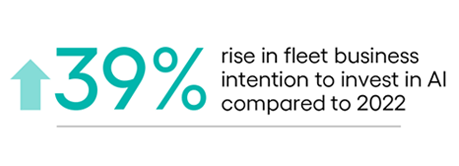
The rapid rise to prominence of ChatGPT and other generative AI technologies has ushered in an influx of commentary and coverage in the media. Awareness of its potential is growing, and across industry verticals, fleet decision-makers are thinking about how AI-enabled tools could benefit their bottom line.
Drone technology is also pulling ahead. Adoption of drones is up 50% and drone technology has the second highest FTI score among emerging technologies.
Although these tools are still evolving, businesses expect emerging technologies to be used in their operations relatively soon—anticipating that AI would be integrated into operations within 4.5 years, with average estimates for the adoption of drones, mobility services and blockchain falling within a 5- to 6-year window.
Core Technologies Lead the Way
Emerging technologies may be gaining ground, but three core technologies—data analytics, telematics and BEVs—remain at the forefront.
Since 2020, the FTI scores for telematics and data analytics have risen by 50% and 28%, respectively. In the last year, adoption of data analytics has grown by 53%, with telematics just behind at 44%. Fleet companies are mobilizing for a data-driven, connected future. Increasingly, the question is when, not if, these tools become commonplace within the business.
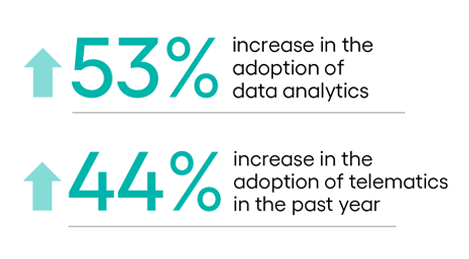
BEVs also perform well in this year’s study. The BEV index score has increased 32% since 2020 thanks in part to evolving regulations and a heavy marketing emphasis in the industry around the transition to zero-emission fleets. Additionally, the recent California Air Resources Board Advanced Clean Fleets ruling will continue pushing fleet electrification. Since 2022, adoption has climbed by 54%, although fleets eyeing electrification still face considerable challenges.
The Year of the Rebound
It may be decades before fleet technologies fully infiltrate the mainstream market. However, fleet decision-makers continue progressing along the adoption curve. The number of fleet companies pilot testing and integrating core technologies is climbing. In 2023, half of survey participants have reported their company had shopped for a BEV. And the portion of companies aborting technology integrations has decreased across all core technologies by 40% to 60%.
From a macro perspective, market conditions remain tough for fleets. In our 2022 Connected Services report, 37% of fleet decision-makers said they were “very concerned” about the possibility of a recession. Even so, companies understand the need to stay competitive in an increasingly technology-driven environment and are reinvesting resources in core and emerging technologies.
While hurdles still exist for fleet companies, many are embracing a forward-looking perspective when it comes to technology—marking 2023 as the year of the rebound.
If you’d like to learn more about our Fleet Advisory Hub findings or how we can help you with your product and service development strategy to best meet the needs of fleet businesses, click the link below to contact us.
About Fleet Advisory Hub™
The results reported come from our 2023 FTI report about the current state of market readiness for adoption of core and emerging technologies by commercial vehicle and fleet businesses, and comprise a subset of commercial vehicle and fleet decision-makers drawn from the Fleet Advisory Hub audience. Participants were recruited from an opt-in online panel of business decision-makers and interviewed online. Escalent will supply the exact wording of any survey question upon request.


